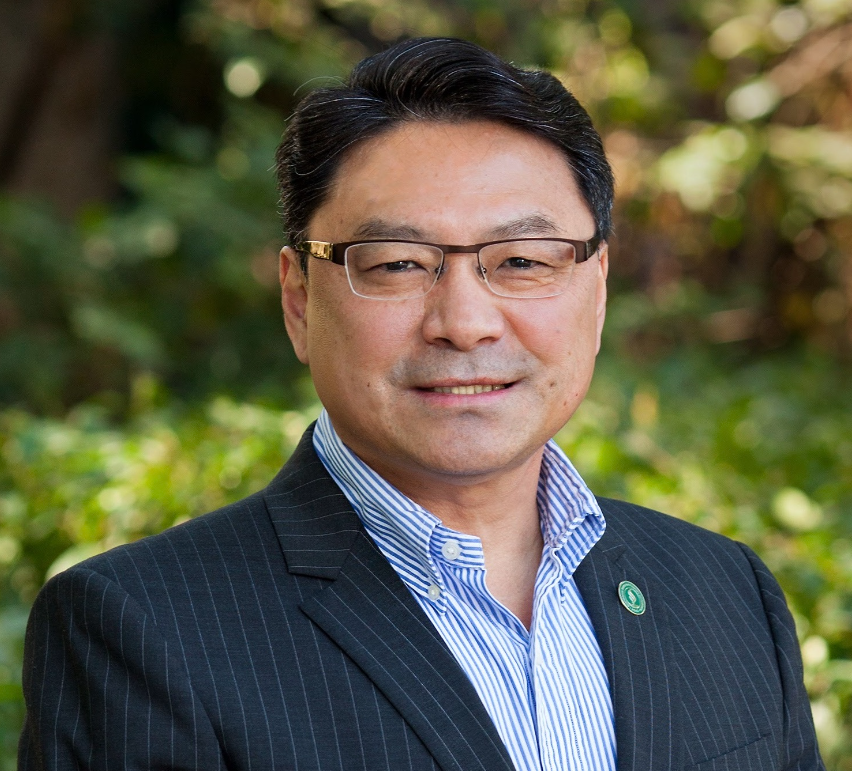Ming-Tung “Mike” Lee, Ph.D., came out of retirement to serve as interim president of Sonoma State University following the resignation of former president, Judy Sakaki on July 31. Lee’s interim appointment began on Aug. 1 and will span the 2022-23 academic year.
Concerns about transparency and accountability have been consistently raised at SSU and Lee plans to address it. Lee has a commitment to communication and removing any barriers that may prevent that.
On Sept. 7, a Sonoma State STAR reporter had the chance to talk to the new president. Lee said, “I really believe do [believe] by being transparent, by sharing information, by asking for advice, we end up with better decisions.” He continued,” There are people that know the history, know the people, know the culture way better than I do. So if I’m not listening to them, if I’m not even asking for their advice I would not be very wise. I do think that over the years I learned a lot from people from all different backgrounds. And students as well because you get to see a lot of things that we don’t see.”
Lee has a long history of service to Sacramento State University, where he worked in leadership roles over the course of his 28-year career there. During his time at Sac State, the school underwent budget struggles while Lee was the Chief Financial Officer, so entering SSU after a budget reduction is something that Lee is prepared for.
“When I was a CFO at Sac State, we had to go through a number of pretty difficult budget situations. The problem with structural deficit is that your revenue, on a regular basis, is not able to support your expenses,” Lee said. “But long term budget cuts or structural deficits force the university to really face reality. You simply cannot just continue to debate actions to be taken. Budget situations like this [are] also sometimes an opportunity for an organization, or university, to really very deeply reflect on what our core missions are. What are the most essential functions that we need to perform, identify those, and make sure that resources are flowing to those areas.”
Lee wants to bring unity to SSU as the school combats budget issues. Sharing resources and functions between departments, where applicable, is an idea that Lee supports; however, focus is put on allowing other people to think and respond to budget strategies. “This is a common issue that we all kind of deal with. By way of doing that, you’re also letting people realize the magnitude of the situation, and more importantly they can become part of the solution,” Lee said.
Lee also wants to focus on the school’s infrastructure. During Lee’s time at Sac State, he helped open the Ernest E Tschannen Science Center, a building worth $91 million. He said, ”Right now our focus is on infrastructure, I mean you see all the digging around. It’s because we have an electronic system that’s older than sixty-years, and you can imagine this is what supplies all the power.”
Jayson Tong, a fourth year history major, responded positively when he heard about the new president’s infrastructure upgrades. “Remodeling the power grid is great, some kind of upgrade to the dorms would be nice, if they could give the dorms ethernet or something that would be great.”
In the STAR’s interview with the president, Lee also discussed some of his childhood experiences and schooling. He was born and raised in Taiwan by parents who received no formal education. His mother was illiterate and his father only received three years of informal-school. These experiences inspired Lee to work in education from a young age. He went to school and became the first one to go to college in his family.
Lee said, “Very early on when I was a teaching professor, I was able to really see that there were a lot of students out there just like me.”
He continued, “We have a lot of people [enrolled] who are second generation, their parents came from Mexico for example, and their mother and father sometimes don’t speak english. If you’re the older person in the family, [oftentimes] you have to care [for your siblings]. I really admire the students who have that kind of perseverance and determination.”
David Rodriguez, a first-generation fourth year sociology major, thinks it’s awesome the president was a first-generation student. “It’s incredibly difficult to do. It seems like he built his empire by himself.” Rodriguez said. “From my point of view, my mom and dad told me being a first generation student means I should be proud of myself, it’s a privilege. It’s nice to have a school president I can relate to.”
In his closing remarks Lee said, “I like to see things work right. So when I see something that’s worthwhile, that’s good, it just gets me, especially when I’m capable. If there are things to fix, I’d love to do it.” He continued one thing he missed in his retirement was the students. “Look at all these students, walking dreams coming true,” Lee said.
COURTESY // news.sonoma.edu
New Interim President , Ming-Tung “Mike” Lee will be with Sonoma State University through the 2022-23 academic year.




































